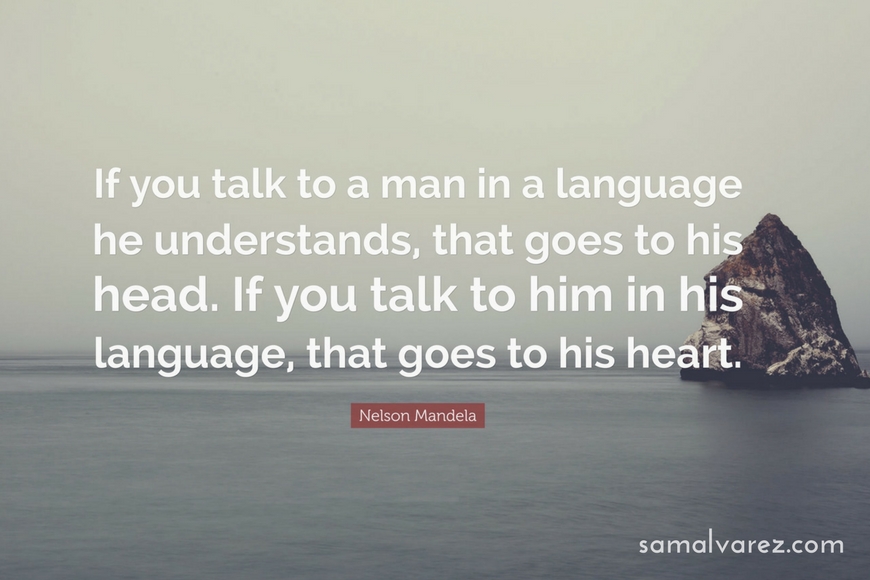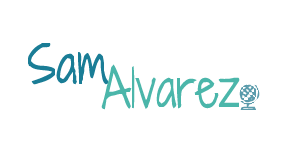Which foreign language to learn when you’re just starting out

“Which foreign language should I learn?”
If you’ve been asking yourself this question, I can totally relate to it. I ask myself this exact question at least once every week.
The problem is that there are so many options available these days, and each language seems cooler than the other.
Paralyzed by the multitude of choices, you end up stuck in “which foreign language should I learn” mode. Or worse, you end up bouncing back and forth between 2-3 different languages.
None of which helps you actually learn any language.
In spite of having learned six foreign languages, I’m always on the lookout for my next linguistic adventure. So I can completely understand how difficult it is to choose a foreign language to learn, especially if it’s your first.
But we’re going to solve this dilemma, once and for all.Learning a foreign language is just like getting fit.
Learning a foreign language is just like getting fit
I want you to think back to the starting of this year. Think about the new resolutions you made about getting fit and healthy.
I want you to think back to the starting of this year. Think about the new resolutions you made about getting fit and healthy.
By this time of the year, you could have totally stuck to your resolutions and rocking a healthy and fit you. More likely, though, is that you gave up on those resolutions as you could never get around to committing to them.
Don’t get me wrong.
We all have new year resolutions and goals that we fail to stick to. And it all comes down to one thing – not enjoying the process.
Let me explain.
The usual fitness advice bandied about goes something like this, “go to the gym five times a week, and eat more kale and spinach.”
And that’s what most people do. They run with this advice, no matter how much they hate going to the gym or how much they hate eating spinach and kale.
Then what happens?
Within a few weeks, the whole gym and more greens routine become a torture.
Welcome to the world of broken resolutions and failed goals.
The key to getting fit (and successfully learning a language) lies in enjoying what you’re doing every day.
Our brains are wired to desire short term satisfaction, no matter how well we understand the benefits of committing to something for the long-term. Getting fit and learning a language are both long-term goals, that is why we need to figure out a way to make the daily process enjoyable.
Now, I’ll give you that you can’t enjoy everything that you do, but what’s the point of pursuing something on your own time if you don’t enjoy it. The lack of joy is what kills motivation and leads to failure in sticking to your goals or resolutions.
Of course, the starting point of any personal goal (whether getting fit or learning a language) has to be knowing your “why”. But once you’re clear that the end-goal is important to you and you are willing to commit yourself to it, it’s time to get started.
Which foreign language should you learn
I wish I could just tell you to learn French (which will overtake English speakers in the future), or Spanish (which is the most common foreign language that native English speakers learn).
But it’s not that simple.
Choosing a language based on statistics (bah!) is like trying to pick up a foreign language dictionary and cramming vocabulary. It’s boring, dry, and just doesn’t work.

Having learned six foreign languages and having talked hundreds of people who’ve successfully managed to learn foreign languages, I think statistics fails to answer the important question.
Instead of “which foreign language should I learn,” you should ask, “which foreign language do I want to speak/read/use.”
It’s not just a matter of which foreign language; it’s a matter of which foreign language is right for “you.” And I believe it comes down to the following three factors:
#1 Learning because you’re interested/passionate
Being passionate for the language you’re learning is hands down the most important factor that dictates whether you’ll be able to speak successfully.
It isn’t just about being passionate about a particular language, though. You could be passionate about the culture or art of a foreign country. You could be interested in learning about the history of a foreign nation. Maybe you are into that country’s food or cuisine.
If the enjoyment of the thing you’re interested in will be enhanced by learning the language, you’re more likely to succeed at learning that foreign language.
In my case, I’m extremely passionate about the different people and cultures around the world. Whenever I travel to a new country, my first instinct is to take a walk and see what the locals are doing, how they spend their time and interact with their environment. If possible, I try to meet locals and engage them in conversations to know more about their lives and cultures.
This behavior is intrinsic to me, and being able to speak foreign languages enriches the whole experience.
One of my friends, on the other hand, was nuts about Japanese anime. He could speak words and phrases (not nice ones, though, thanks, anime) before he even started learning the language. His interest in learning the language was spurred on by his interest in anime. And his passion clearly showed when he landed in Japan for the first time and was able to have conversations with locals within four weeks of landing there.
If you think learning a language will enrich the experience of something that you already do, then you’ve already set yourself up for success. Your passion for the activity which motivated you to learn the language will help you learn it successfully.
So if you are still not clear which foreign language you should learn, pick the one that you’re most passionate about.
#2 Learning because it’s part of your environment
Environment plays a very important role in helping you become fluent in a language. Even if you don’t like the place you’re in, just the fact that everyone around you will be speaking the language can make a huge difference in you being able to learn it fast.
Imagine you have to move to Quebec, Canada for a job, where more than 95% of the people speak French. You couldn’t get away from it even if you tried. So you might as well learn it and become a part of the community.
When the language is part of your environment, your desire to learn it will go up (even if it was negative, to begin with).
When I jumped on a plane to Japan, I was going there to learn Japanese at a university in Okinawa. But more than the classroom learning, my conversations with the locals at the restaurants and izakayas taught me about the nuances of the Japanese language.
But you don’t have to travel to a foreign country and live there to learn their language. Nor would it be of much help if the locals are used to speaking English (which is rare in Japan, and even more so in Okinawa).
The idea is to immerse yourself in an environment where the language is being spoken day in and day out. Every conversation that you have or could walk into would have a smattering of the foreign language you want to speak. Some people (myself included) even intentionally put themselves into these environments when they want to be able to speak a language.
So if you happen to live or work in an environment where a language other than English is just as popular, if not more, your chances of successfully learning a language will shoot up significantly.
Even if you’re not especially interested in learning that particular language, you will become more interested once you start learning it. Just be sure that you don’t actually dislike that language. In which case, why the hell are you still there?
#3 Learning because it will make your life better
The final factor in choosing a foreign language to learn is to decide based upon how it will make your life better.
I know, I know. It’s hardly a quantifiable thing but roll with me here.
Last summer, when I was traveling to Europe, I decided to stay for a few weeks in Berlin. Firstly, because it seemed like a super-cool place (and it is). Secondly, I was working remotely for a Berlin-based startup and living there would give me an opportunity to meet my colleagues and mentors in person and build better relationships with them.
So a few weeks before I left for Germany, I started learning German. Even though I didn’t get to the proficiency level that I wanted to be at, I still knew enough to have meaningful conversations with my colleagues and people I met there.
Since people are more likely to trust you if you speak to them in their language, I believe I did form better relationships at my workplace.

Maybe you work in an office where you have a lot of partners or clients from a specific country. Think about how much more you’d be valued if you could talk to them in their own language, or even just say “hello” in their native tongue.
But making your life better doesn’t always have to be about professional benefits and gains.
Let’s say your spouse has family in a foreign country. But whenever you visit them, you feel left out because you can’t speak the language. If you could, though, you would be able to converse with them and build better relationships, improving your life in general.
Or let’s say you quit your job and decide to become a scuba diving instructor in SE Asia. You might be able to get away by speaking English, but you’ll most likely be working with locals who speak the native tongue.
You won’t be getting any raises or promotions for speaking the local tongue, but you can be sure that you’ll have much more fun working with the locals. I can’t tell you how many times I saw the dive instructors crack jokes with the boat captain when I went diving. It just made the boat feel like a happy and welcoming place.
If you’re still stuck trying to decide which foreign language to learn, think about what things in your life you’d like to improve, and whether learning a foreign language could help with that.
Learning a foreign language is fun – keep it that way
When it comes to choosing the foreign language that you want to learn, all 3 of the factors will come into play – your passion, your exposure to the language, and the language’s positive influence on your life.
But no matter which foreign language you choose to learn, as long as you’re having fun learning it, you’re on the fast track to being able to speak it fluently.
Like I said before, if you enjoy the process of learning and practice it daily you’ll be able to start speaking in less than a month.
And I have got a way to make language learning fun for “you.” Not everybody, not your friends, but specifically “you.”
I bet there are certain activities that you enjoy, which your friends think are boring. Or vice versa. It all boils down to your personality. Even when it comes to learning languages, your personality has an important role to play. Especially, when it comes to choosing the language learning method that YOU would find the most fun. And as we talked about in the post, the best shortcut to learning any foreign language is to enjoy it.
So I have created a quiz, which will tell you your personality type specifically as it pertains to language learning. You’ll get access to tips & tricks specific to your language learning personality type, which will make the process of more fun and help you learn faster.
So take the quiz now, and get started on your own linguistic adventure.
